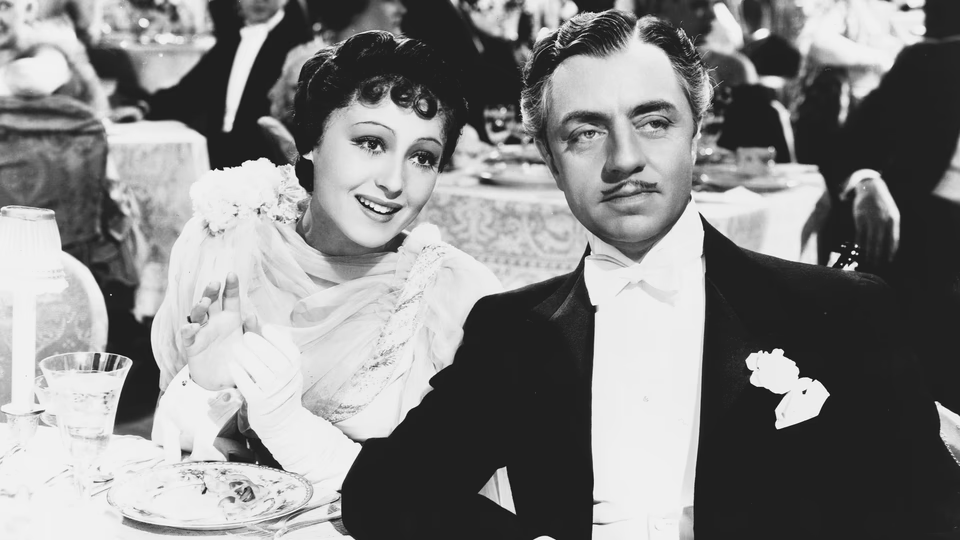The Great Ziegfeld

William Powell stars as famed impresario Florenz Ziegfeld. The film traces his career from sideshow barker to Broadway mogul, at one point having four hits at once, only to die broke after losing everything in the crash of ‘29.
It opens well, with Powell shining as the always angling Ziegfeld. His urbane charm, combined with the character’s infectious optimism and confidence, endear him despite his questionable behavior. For example, he hires a rival’s butler by offering to double his salary, despite being near broke. When he later encounters said rival, who’s still sore about losing such a good man, Powell dismisses it with a grin, saying, “Gentlemen don’t quarrel over gentlemen’s gentleman.”
But the film stumbles with Luise Rainer’s introduction as French diva Anna Held. The script paints her as petulant and self-absorbed, but—unlike Powell—doesn’t afford her any charming moments to offset this behavior. Further, she lacks chemistry with Powell, making their entire relationship feel forced and robbing the relationship of any emotional stakes. And it doesn’t help that her would-be French accent keeps slipping to her native German.
Things go downhill from here.
The film proffers recreations of Ziegfeld’s stage productions. We get Buddy Doyle as Eddie Cantor doing his blackface routine, and A.A. Trimble as the just-deceased Will Rogers. But as Ziegfeld pivots to spectacle over personality, the recreations struggle to translate the experience. The grandiose stage productions convey a sense of the scale but lack the awe inherit in witnessing them live.
Even Fannie Brice, who plays herself, struggles. She performs her stage routine, but the screen’s intimacy reduces it to emotive mugging.
Things pick up when Myrna Loy turns up as Billie Burke. She eschews a Burke impression and relies on her and Powell’s natural chemistry, which clicks from their first scene. But, this scene arrives two-plus hours into the three-hour running time. It’s too little too late.
Said running time spans thirty-eight years. Powell’s hair proves the only thing that ages. It goes grey in marked stages before, in an abrupt transition between scenes, turning white. This affords little sense of how much time passes between scenes. The aged Powell looks like the young Powell with white hair.
Perhaps this was a fool’s errand. In trying to tell Ziegfeld’s story, the film aims for a Ziegfeld-level production. A romantic epic with heart wrenching melodrama, lusty romance, and jaw-dropping musical numbers. It succeeds in none of these, though Powell’s performance does the man proud.